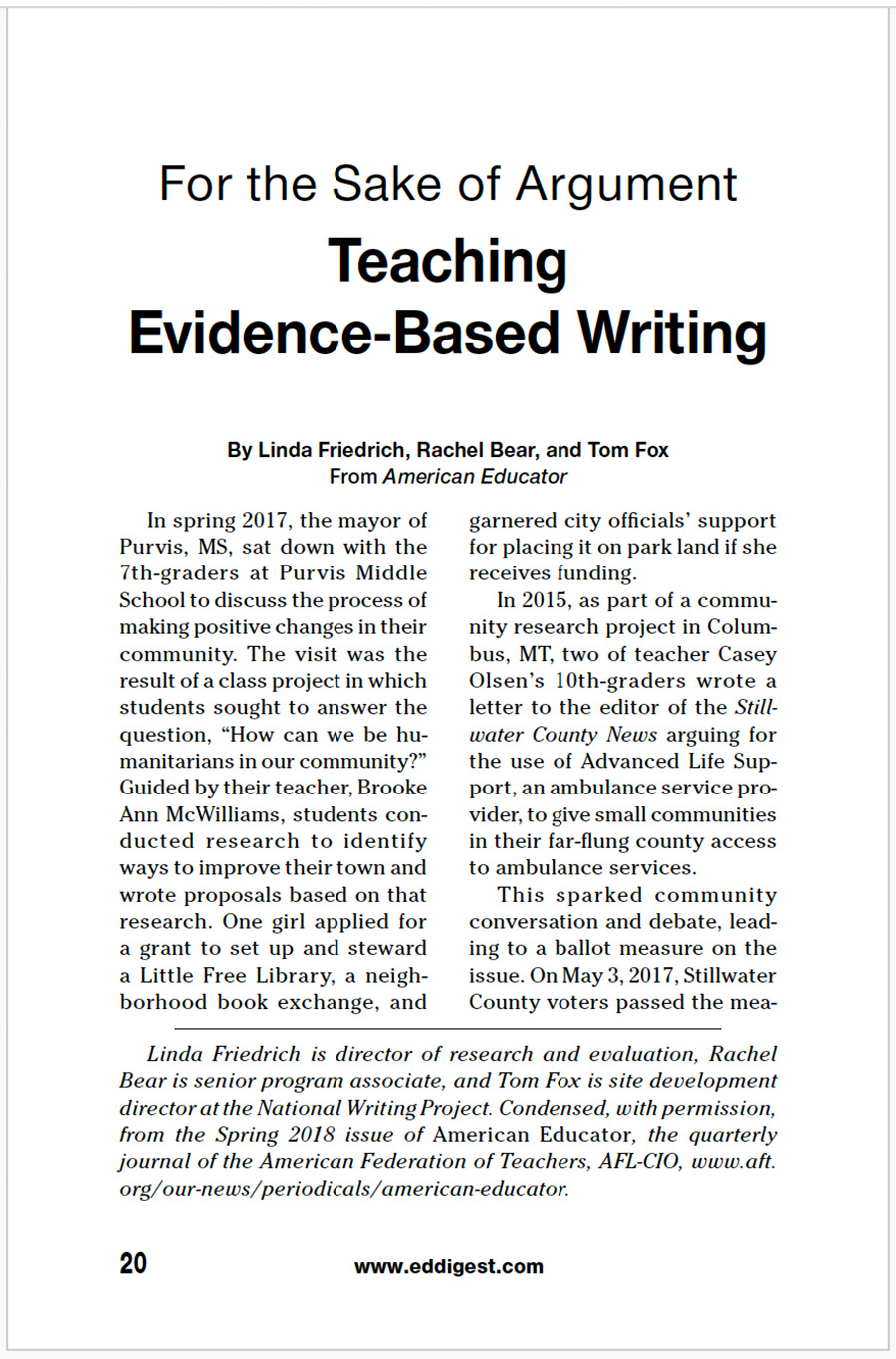Civically-Engaged
Teaching Writing
Writing Assessment
For the Sake of Argument: Teaching Evidence-Based Writing
Summary:
The instructional resources contained in this article are designed to develop specific argument skills and include text sets that represent multiple perspectives on a topic. The resources also emphasize iterative reading and writing practices, the recursive development of claims, organizing and structuring writing, and embedding formative assessment opportunities. The formative assessment tools help teachers assess students' written arguments and provide specific feedback.“To the detriment of education, we live in what author Deborah Tannen calls the ‘argument culture,’ where ‘winning’ is more valued than ‘understanding.’ The NWP’s approach to argument writing starts with having students understand multiple points of view that go beyond pros and cons and are based on multiple pieces of evidence, which ultimately enables students to take responsible civic action.”
Also Recommended
See allTeaching from an Ethical Center: Practical Wisdom for Daily Instruction
Author Cara Furman talks with Stephanie Jones, co-director of the Red Clay Writing Project, about bringing ethics, philosophy, and body-centered practices into teaching.
Read more
Writing Our Future: Our Towns, Our Stories
Our Towns, Our Stories provided students an opportunity to try their hand at journalistic writing about the place they call home. Writer-facing modules and resources are available along with reflections by students about their process.
Read more


